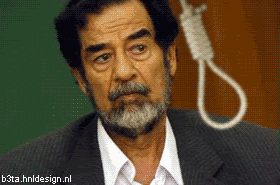A Worthy Read (Again)
Now They Call Me Infidel
Why I Renounced Jihad
for America, Israel,
and the War on Terror
By Noni Darwish
Sentinel. 258 pp. $23.95
Reviewed by Leonard Boasberg
I wasn't sure I wanted to read this book. It comes accompanied by a battery of blurbs by several right-wing luminaries, including recently (and involuntarily) retired Sen. Rick Santorum. Still, you can't always tell a book by its blurbistas, and Noni Darwish's Now They Call Me Infidel might, I say just might, indicate something astir in the Islamic world: women in rebellion.
Darwish tells the story of her journey - her hajj, as it were - from the constricted world of Islam to the open society of the West. Her father was a shahid, a martyr. Egyptian President Gamal Abdel Nasser had chosen him to lead the first fedayeen unit to conduct guerrilla operations inside Israel, in the early 1950s. Two weeks before he was to return to Cairo, he was killed. Darwish, one of four daughters, was only 8 years old.
"As a child," Noni Darwish writes, "I was not sure what a Jew was. I had never seen one. All I knew was that they were monsters. They wanted to kill Arab children, some said, to drink their blood."
Today, some 50 years later, she writes articles and gives speeches against Arab terrorism. She has spoken to Hadassah. She is an American citizen, a Christian, and a Republican. She has visited Israel and is a passionate defender of its right to exist, and its democracy.
What happened to explain this transformation of a Muslim girl, the daughter of a shahid, raised to fear and despise Jews?
It might have had something to do with a natural against-the-grain mentality. Even as a child she could not accept "a culture that was willing to orphan its own children in its obsessive hatred of Jews."
In 1964, at 16, she became a student at the American University in Cairo, where, she writes, she obtained a new perspective - a respect for knowledge and truth that she found lacking in Muslim society. She came to America in 1978 and married her Coptic Christian boyfriend, who converted to Islam, but the marriage foundered. She remarried an American.
Darwish is unsparing in her condemnations of Islamic and Arab culture. She denounces the anti-Semitism propagated in schools, in mosques, in the Arab media and the persecution of Christians, especially Copts in Egypt. She tells of an Arab society infected by the inferior status of women, with polygamy still widespread. Marriages, she writes, are arranged between families; a girl can't even risk being seen with a boy she's not married to, lest her reputation be ruined.
If, as some assert, Islam is a religion of peace, why, Darwish asks, is teaching hatred, violence and jihad tolerated in Muslim schools? Where is the outrage over terror against civilians? Where is the outrage, in the Arab street and media as well as among Arab Americans, over such barbaric acts as the beheading of Daniel Pearl and the murder of Margaret Hassan, the British woman who for 30 years labored to help Iraqi women?
The author's own outrage at Western media is somewhat overdone. Where does she get the idea that reports are "often intertwined with messages of blaming America first" and "smearing Americans who wanted to alert the American public to jihad in America by calling them bigots and alarmists." Examples, please. None provided.
Now They Call Me Infidel is Darwish's personal story - provocative, repetitious, and not too well organized, Still, she asks some pertinent questions:
"Why is the Muslim world threatened by Israel? Why are they obsessed with hating it? What is the Muslim world afraid of? Is it afraid of Israel, or is it that they are afraid of comparing themselves with it and seeing reality?"


























0 Comments:
Post a Comment
<< Home